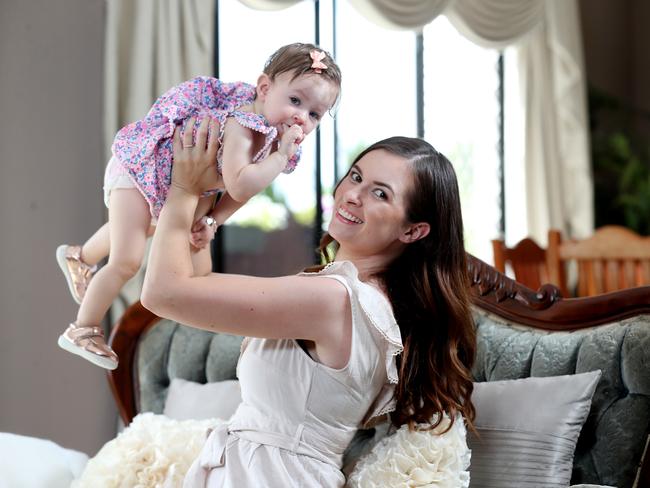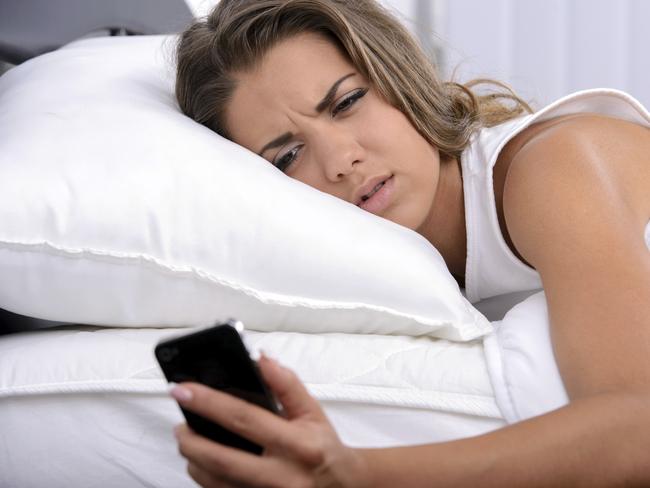Australians can’t sleep as some call for bosses to pay to help workers get a better sleep
More than three-quarters of Australians experience broken sleep and are not productive at work, leading some to call for employers to pay for their workers to get better sleep.
Health
Don't miss out on the headlines from Health. Followed categories will be added to My News.
Exclusive: Three-quarters of Australians experience broken sleep at least once a week and their long-term health is suffering, according to new research.
And more than 60 per cent of us are ignoring the critical warning signs of detrimental lack of sleep and it’s having serious economic and health consequences for the nation.
The cause of the concerning slumber numbers is our increasing digital connectedness, experts say.
One has even gone as far as calling on employers to get behind funding sleep treatments and therapy for workers who are not getting enough shut-eye.
Regular sleep disruption can have life-threatening consequences, including an increased likelihood of accidents and injuries, as a result of the body’s typically slower reaction time.
Research conducted with 1053 Australians shows 76 per cent of us are experiencing broken sleep at least once a week.
And 75 per cent say we have irregular sleeping behaviour, such as not going to bed at the same time each day or waking at odd hours, but only 20 per cent have ever had their sleep assessed by a professional.
RELATED: Australians among the worst in the world for managing their time
RELATED: You’ll be shocked by how much obesity is costing all of us

More than four in 10 admitted to feeling overwhelmed, anxious or depressed as a result of poor sleep hygiene, while a similar number also confessed to skipping their morning workout.
The findings are from the 2019 Sleep Health Survey conducted by Amcal Pharmacy and come as a House of Representatives parliamentary inquiry into Sleep Health Awareness in Australia is due to hold hearings in Sydney and Melbourne next week.
Amcal Senior Pharmacist, Brinley Hosking, said “a distressingly high” number of Australians were at risk of chronic sleep health deficiency conditions.
Lead Partner of Health Economics and Social Policy at Deloitte Access Economics, Lynne Pezzullo, said the cost to the economy of lack of sleep was $26.2 billion in 2016-17 and the problem was only getting worse.
She said it would be worth employers looking at how they could better support employees to have good sleep habits, including potentially funding treatments for more serious conditions such as sleep apnoea.
“At the very least employers should have wellbeing programs that provide good health prevention strategies including supporting sleep,” Ms Pezzullo said.
Professor of Sleep Medicine at Flinders University, Doug McEvoy, said the increased pressures of day to day life were leading to worse sleep outcomes for Australians.
“People are staying connected until late in evening to work and also friends and family which is meaning we are less relaxed and less likely to have quality sleep,” Professor McEvoy said.
Digital expert Kristy Goodwin said our connection to devices and social media was causing a “health epidemic” on sleep.

“It is something need to be really alarmed about because it is impacting all members of society,” Dr Goodwin said.
“Most adults have their phone within one-metre proximity 24-hours a day and if you wake up to go to the bathroom in the middle of the night and reach for your phone that can interfere with your quality of sleep.
“Many people also don’t turn off their alerts and notifications so instead of getting completed sleep cycles often they are being interfered with because of their alerts and notifications.”
Brisbane woman Ali Jordaan struggled for a good night’s slumber when her baby April was a newborn.
“Up until a month ago she was waking a lot, so lack of sleep was something I experienced and it was really hard,” she said.
“I could be having a conversation and halfway through forget completely what the point was.
“Waking up in the morning now I feel a lot brighter instead of dragging myself out of bed,” she said.
Health Minister Greg Hunt said the government was committed to reducing the burden of poor sleep on the Australian community.
“Our Government recognises that there is growing evidence that indicates inadequate sleep may be a risk factor that contributes to individuals developing a range of chronic conditions and illnesses,” Mr Hunt said.
“The Australian Government has provided more than $85 million through National Health and Medical Research Council grants into sleep and sleep-related conditions since 2000, to support sleep experts in researching sleep problems and disorders.”


